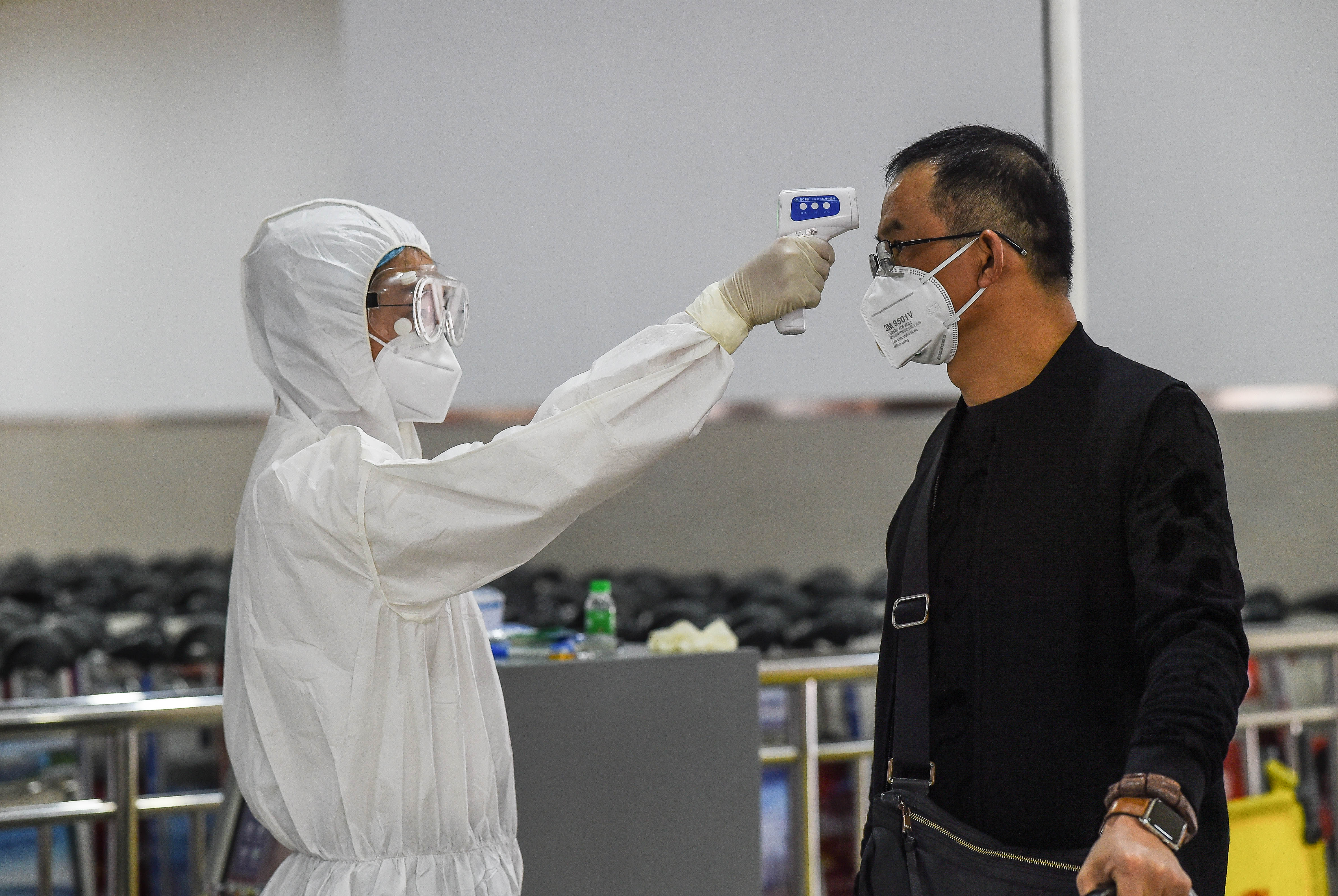
Aerial photo taken on Feb. 2, 2020 shows the Huoshenshan (Fire God Mountain) Hospital in Wuhan, central China's Hubei Province. (Xinhua/Cheng Min)
China and the United States can learn a lot from each other in fighting diseases, and should also enhance information exchange and sharing in the areas of virus research and development of effective medicine and therapies, said a global health governance expert.
NEW YORK, Feb. 2 (Xinhua) -- The prospects for U.S.-China cooperation in the prevention and control of major global epidemics are "very broad," a renowned U.S. expert on global health has said.
There are several aspects where the two sides could join hands to contain and combat the ongoing novel coronavirus outbreak, said Yanzhong Huang, a senior fellow for global health at the U.S. nonprofit think tank Council on Foreign Relations, during a recent phone interview with Xinhua.
Both sides can strengthen policy coordination regarding border entry and exit inspections, which will help minimize the impact of the virus outbreak on bilateral and global tourism and trade, noted Huang, who is also professor and director of Center for Global Health Studies at Seton Hall University's School of Diplomacy and International Relations.

A security staff member checks a passenger's temperature at Sanya Phoenix International Airport in Sanya, south China's Hainan Province, Jan. 27, 2020. According to the airport authority, all passengers arriving or leaving the airport should accept temperature checks. (Photo by Pu Xiaoxu/Xinhua)
China and the United States can learn a lot from each other in fighting diseases, and should also enhance information exchange and sharing in the areas of virus research and development of effective medicine and therapies, the global health governance expert said.
As China swiftly shared the new strain of coronavirus with the World Health Organization (WHO), researchers in the United States and other countries have been able to develop test kits and start work on vaccines, he said.
Meanwhile, as the outbreak has strained China's public health system, the United States can help by providing medical supplies and relief materials most needed in China, added Huang.
Underscoring the importance of international cooperation and coordination in addressing a major outbreak, Huang pointed out that infectious diseases know no borders and any anti-epidemic battle is not just one single country's business.
The WHO on Thursday declared the novel coronavirus outbreak a public health emergency of international concern (PHEIC) while expressing confidence in China's efforts. ■



